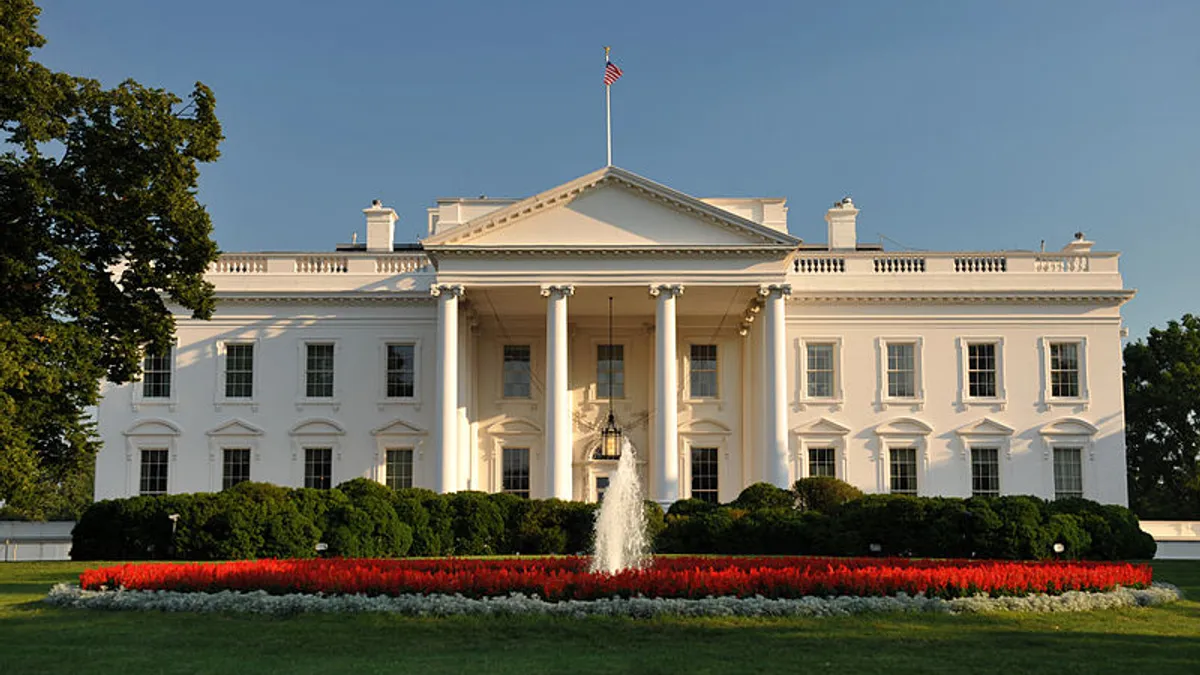Dive Brief:
- Employers say they're feeling some regulatory relief with the change in administrations, but also feel burdened by recent abrupt and dramatic regulatory changes, slow-moving confirmations to key government agency positions and the growing patchwork of state and local requirements, according to Littler Mendelson's 2018 Annual Employer Survey.
- The survey, which polled 1,111 in-house counsel, human resources professionals and C-suite executives found that employer concerns have shifted a bit from last year. The portion of respondents expecting a significant impact from the Affordable Care Act dropped from 33% to 15%; the survey revealed similar drops in concerns about U.S. Department of Labor and National Labor Relations Board enforcement. Concern about U.S. Equal Employment Opportunity Commission (EEOC) enforcement, however, remained high, climbing slightly from 76% to 77%. "This aligns with a key finding from Littler’s Annual Report on EEOC Developments – that the Commission actually filed more lawsuits in fiscal year 2017 than it has since 2011," the firm said.
- Employers also told Littler that they expect immigration-related changes to significantly impact their workplaces during the next year. Tighter restrictions on visa adjudications, such as those for employees with specialized skills and temporary workers, topped the list, followed by increased workplace immigration enforcement by U.S. Immigration and Customs Enforcement and associated agencies.
Dive Insight:
Employers certainly have experienced some relief during the past few months. The administration successfully blocked EEO-1 compensation reporting requirements, the overtime rule and more. But those rollbacks spurred additional action at the state and local levels, experts say, creating a patchwork of laws that are particularly troublesome for multi-state employers.
Additionally, it makes sense that employers would be particularly concerned about EEOC enforcement actions. While some agencies have already eased up on enforcement in favor of "compliance assistance," or employer education, that hasn't yet happened at the commission. President Trump's two conservative nominees still await Senate confirmation, which has left democrats with a 2-1 majority and free to continue to enforcing the agency's Obama-era stances.
Finally, employers' immigration-related concerns echo what others have said throughout the past year. Businesses (especially those in seasonal or hospitality industries) reported difficulties finding workers last year, and it's unclear whether 2018 will be any better. The cap for H-2B visas has not yet been raised — although Congress recently granted the government the ability to do so — and the limits are being met in record time. For employers who missed out on these visas this time around, it's unclear whether relief is on the horizon.













